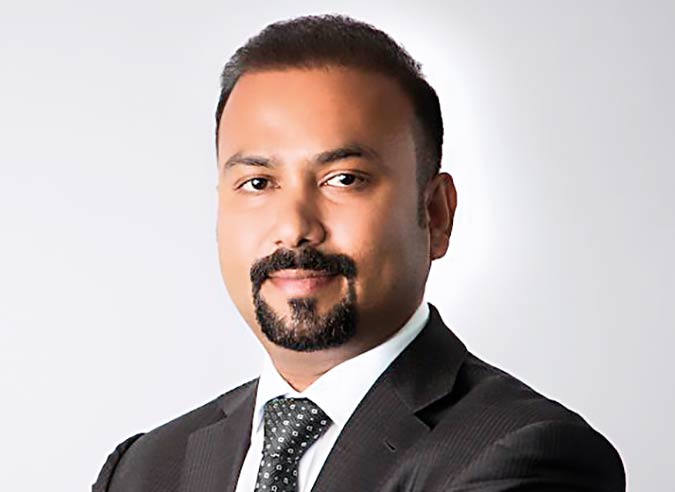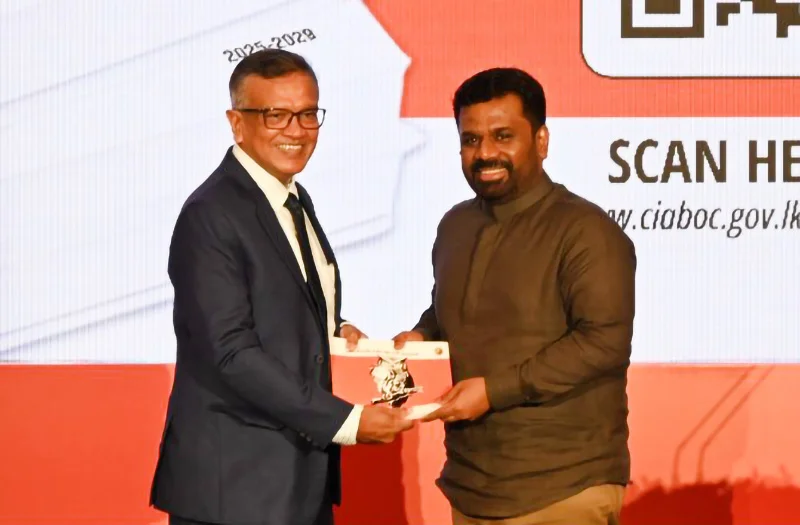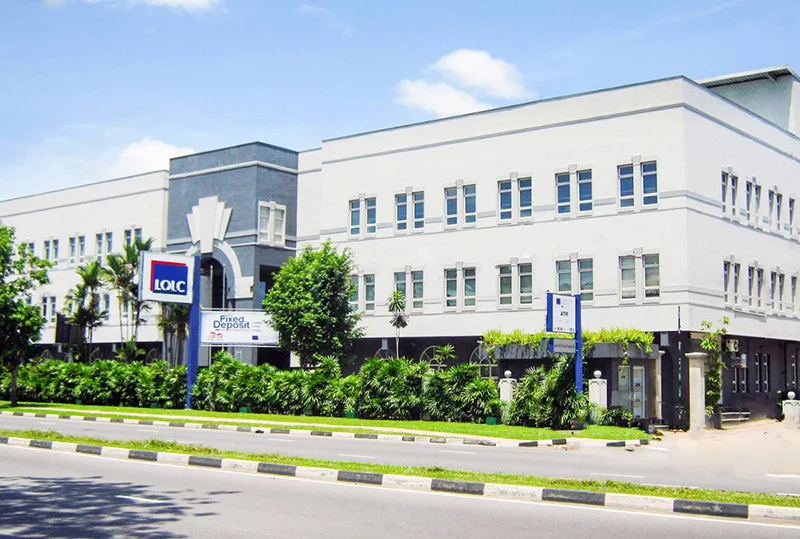Business
Lycamobile’s Subaskaran Allirajah: Refugee from SL owning UK business empire

“He cooks for everyone and we stand around the breakfast bar and chat. Some of the most important decisions the company has taken have been over meals he’s made.”
This is one of Lycamobile’s leadership team, and he’s talking about his boss, founder and chairman Subaskaran Allirajah. Lycamobile is a mobile virtual network operator, providing Sim packages to people across the globe, enabling them to make calls to anywhere else in the world – you might recognize its store frontage.
The name “Lyca” is based on Allirajah’s sister’s name, Lehka. “I didn’t want to name the company after her exactly in case it didn’t work out,” he explains. Today, Lycamobile is in 21 countries, has 15m customers and turns over €1.6bn. According to The Sunday Times’s Rich List, Allirajah is worth £180m.
The company has 11 subsidiaries and other parts of the business, too: there’s (to name but a few) Lycaremit, a money transfer service, LycaFly, which offers cheap flights, LycaTV, Lycalotto and Lyca Productions, which is working on the film 2.0, billed as being the most expensive Indian production ever, having released a Bollywood hit already.
“Films as well?” I ask as we course through Allirajah’s achievements. “You can make a good margin on films in India, provided you run it as a business. But more than anything, film is my passion; I just really, really love it. When I was little I loved to watch movies – I’d watch one or two every day. Of course, I never thought I’d release a movie,” he qualifies.
But sitting talking to Allirajah in Bella Cosa, his Italian restaurant in Canary Wharf (it’s opposite his office and came up for sale. He owns the Indian down the road, too), it quickly becomes clear that life hasn’t always been like this. The multi-millionaire grew up in Sri Lanka during the country’s civil war. His dad died when he was young and, as a teenager, he followed his brother to Paris to escape the conflict.
Once there, the family set up a restaurant, then a grocers. The grocers sold calling cards to people who wanted to phone abroad. “Suddenly, the distributor stopped supplying, and customers were running round trying to find cards. Other incumbents were too expensive… my brother and I thought, ‘why don’t we just start selling them ourselves?’”
Business went well and, in 1999, Allirajah moved with his wife, then a medical student in Sri Lanka, to London. Three years later, he set up his own firm, Lycatel, a calling card firm. By 2006, he’d moved into mobile. Calling cards “were great for calling internationally at a cheaper rate, but a pain to use for the customer. In the early 2000s, not everybody had a mobile phone. But between 2000 and 2006, usage increased.”
Allirajah decided to bring across the benefits of the calling card to a mobile platform – so customers would have the benefit of making international calls cheaply on their mobiles. “To do that, we had to become a mobile virtual network operator (MVNO) – a user friendly innovation. Regulations in Europe had recently changed to allow this to happen, and the Netherlands was one of the first countries to adopt the change. So we launched Lycamobile there with T-Mobile.”
Move with the times
Now, Lyca’s reach spans Australia to Poland, Tunisia to the US. Allirajah says changing migration patterns and increasing movement means Lyca’s target audience has altered. “With calling cards, it was individuals looking to call outside Europe. Then, it was intra-Europe. Now, it is the international customer – anyone travelling internationally. People used to be happy with having two phones and having to switch between them; now they want just the one.”
Moreover, voice calls still play a huge part in Lycamobile’s offering, he adds, despite the enormous rise of data. That said, Lyca’s spin-offs focus closely on the rise in the use of data in its key markets: across Africa, for example, LycaTV offers specific content aimed at local audiences. You can see the logic: if you’re offering data, why not offer content for consumers using that data?
“We have LycaTV, LycaRadio – it’s great for customers to have all of that in one place. The challenge for all operators is to strike a balance between what people are doing, what they are using, and be one step ahead: what will they want next?”
A bigger purpose
But what has driven him to do all this? Attempting to extract a grand statement from him, we come to: “I simply took advantage of opportunities that were before me, because that was all I had at the time. Having some success has meant being able to give back to communities who need it. That is fulfilling.”
It’s his team who pipe up: “Subas is the most humble, generous person. He just will not admit it”; “he spends so much time giving others things, making the lives of others better.”
In 2010, Allirajah founded the Gnanam Foundation with his mum (Gnanam is her name). Financed entirely by his company, the foundation will shortly open Lyca Village in Northern Sri Lanka. The village has been built for a community that has been in a refugee camp for the past 25 years. “That is an achievement for me. I would like to do more projects like this, in places where it’s needed most.”
Allirajah’s wife is the chair of the Gnanam Foundation, and of LycaHealth. “She never got to finish her studies and become a doctor [she followed Allirajah to the UK and then studied biomedical sciences], so I said to her ‘I’ll make sure you will have many doctors reporting to you.’” LycaHealth owns and runs diagnostics centres in Canary Wharf and Orpington. It will shortly be opening a new, 11-storey facility, in Chennai in India. “The long-term plan is to have 10 worldwide. She’s the one behind it and now has over 200 doctors reporting to her.”
In addition to opening a village, a medical centre and releasing a film this year, Allirajah intends to press on with his plan to have 50m people using Lycamobile by 2020, focusing on Africa and South America for growth. The company has also just bought Ortel, a direct competitor in Belgium.
“It’s a good year, actually. And there is increasing interest worldwide for launching MVNOs – from football clubs to social media startups.”
Business
National Anti-Corruption Action Plan launched with focus on economic recovery

In a decisive move to stabilize Sri Lanka’s economy and rebuild investor confidence, the Commission to Investigate Allegations of Bribery and Corruption (CIABOC) yesterday launched the National Anti-Corruption Action Plan (NACAP) 2025–2029, with a clear focus on promoting transparency, accountability and economic governance.
Developed with the support of the United Nations Development Programme (UNDP) and funded by the government of Japan—contributing nearly USD 900,000—the initiative aims to address corruption as a critical economic barrier.
The launch, attended by President Anura Kumara Dissanayake, Chief Justice Murudu Fernando PC, and high-level diplomatic and institutional representatives, signals a shift in Sri Lanka’s economic reform narrative. The NACAP is seen not just as a governance tool but as an economic recovery strategy designed to attract foreign investment, improve public finance management and rebuild public trust.
R.S.A. Dissanayake, Director General of CIABOC, noted that corruption, “is more than a legal issue—it is an economic cancer that stifles innovation, distorts markets and deters foreign direct investment.” The establishment of Internal Affairs Units (IAUs) within government institutions is expected to bring internal oversight to public spending and performance, improving the efficiency of state services.
Japanese ambassador Akio Isomata stressed that eliminating corruption is essential for Sri Lanka to regain global investor confidence. “Transparency and good governance are fundamental pillars for sustainable economic development, he said. “For Sri Lanka to attract foreign investment and achieve long-term growth, the effective implementation of this Action Plan is crucial.”
Echoing this, UNDP Resident Representative Azusa Kubota highlighted the importance of aligning governance with economic goals. “The NACAP is a roadmap for transforming Sri Lanka’s economic governance, she said. “It will make corruption visible, measurable, and actionable.”
The NACAP is built on four strategic pillars—Preventive Measures, Institutional Strengthening & Enforcement, Education, and Law & Policy Reform—targeting nine priority areas. These include streamlining state enterprise management, modernizing financial crimes investigation and integrating anti-corruption education into economic policymaking.
The implementation timeline is designed with a phased approach: short-term stabilization, medium-term reform and long-term transformation—ensuring consistent progress toward a more accountable and economically resilient state.
“Corruption ends here. The responsibility of eradicating bribery and corruption will not be passed on to the next generation — it will be resolved by our government today, President Anura Kumara Dissanayake said.
The President stressed it marks a turning point in Sri Lanka’s history. “With the launch of the National Anti-Corruption Action Plan 2025–2029, we are drawing a bold line in the sand. No longer will the fight against corruption be tangled in politics or postponed for the future. Public officials now have six months to bring transparency and integrity to their institutions. After May, the law will act decisively and without exception. This is not just policy — it’s a promise. A new era of accountability has begun and it begins with us.”
By Ifham Nizam
Business
Verdant Capital doubles down: $13.5m now powering LOLC Africa’s MSME expansion

Verdant Capital invests $4.5M more in LOLC Africa, expanding MSME lending across 10 countries and deepening financial inclusion efforts continent-wide.
Verdant Capital has announced that its Verdant Capital Hybrid Fund (the “Fund”) has completed an additional investment of USD 4.5 million in LOLC Africa Singapore Limited (“LOLC Africa”). This investment brings the total investment in LOLC Africa to USD 13.5 million. This follows the initial investment of USD 9 million in LOLC Africa, completed in June 2023. Both investments are structured as holding company loans, and they are being directed towards LOLC Africa’s operating lending subsidiaries in Zambia, Rwanda, Egypt, Kenya, Tanzania, Nigeria, Malawi, Zimbabwe, Ghana, and the Democratic Republic of Congo.
Founded in 1980 in Sri Lanka, LOLC entered the African continent in 2018. Verdant Capital Hybrid Fund is the first external investor in LOLC Africa’s operations, reflecting the Fund’s catalytic investment approach. These investments are driving the expansion of LOLC Africa’s micro, small and medium enterprises (MSMEs) financing footprint across the continent. Additionally, the Fund’s Technical Assistance Facility (TAF), has offered financial support for LOLC Africa’s Social Ratings and Client Protection Pre-Certifications for its subsidiaries in Zambia and Egypt, with further Technical Assistance initiatives in the pipeline.
Business
HNBA’s advisor & partnership channels drive 26% growth

HNB Assurance PLC (HNBA) delivered another year of outstanding financial performance, securing a 7.5% market share and moving a step closer to achieving its ambitious target of 10% market share by 2026. This success was a result of the company’s well-structured strategies, focused on sustainable growth in an increasingly competitive landscape, which yielded impressive results, with its Gross Written Premium (GWP) growing by 26% compared to the previous year.
Over the past four years, HNBA has maintained an average growth rate of 26%, consistently outperforming the industry. A key element of HNBA’s approach has been prioritizing distinctive, value-driven products over high-volume, lower-margin offerings. This strategy has allowed the company to cater to a broader customer base, ensuring inclusivity while maintaining the competitiveness and relevance of its product portfolio
In terms of growth, HNBA’s proactive investment strategy resulted in an 8% growth in investment income, reaching Rs. 6.9 Bn, while Funds Under Management saw a 26% increase. HNBA paid net benefits and claims totaling Rs. 2.9 Bn. The total assets of the company expanded by 24% to Rs. 53.4 Bn, primarily driven by increased financial investments. Additionally, total Life Insurance contract liabilities grew by 25% to Rs. 38.6 Bn, following a surplus transfer of Rs. 1.3 Bn to shareholders.
-

 Business4 days ago
Business4 days agoColombo Coffee wins coveted management awards
-

 Business6 days ago
Business6 days agoDaraz Sri Lanka ushers in the New Year with 4.4 Avurudu Wasi Pro Max – Sri Lanka’s biggest online Avurudu sale
-

 Features5 days ago
Features5 days agoStarlink in the Global South
-

 Business7 days ago
Business7 days agoStrengthening SDG integration into provincial planning and development process
-

 Business6 days ago
Business6 days agoNew SL Sovereign Bonds win foreign investor confidence
-

 Features2 days ago
Features2 days agoSri Lanka’s Foreign Policy amid Geopolitical Transformations: 1990-2024 – Part III
-

 Features5 days ago
Features5 days agoModi’s Sri Lanka Sojourn
-

 Midweek Review2 days ago
Midweek Review2 days agoInequality is killing the Middle Class











